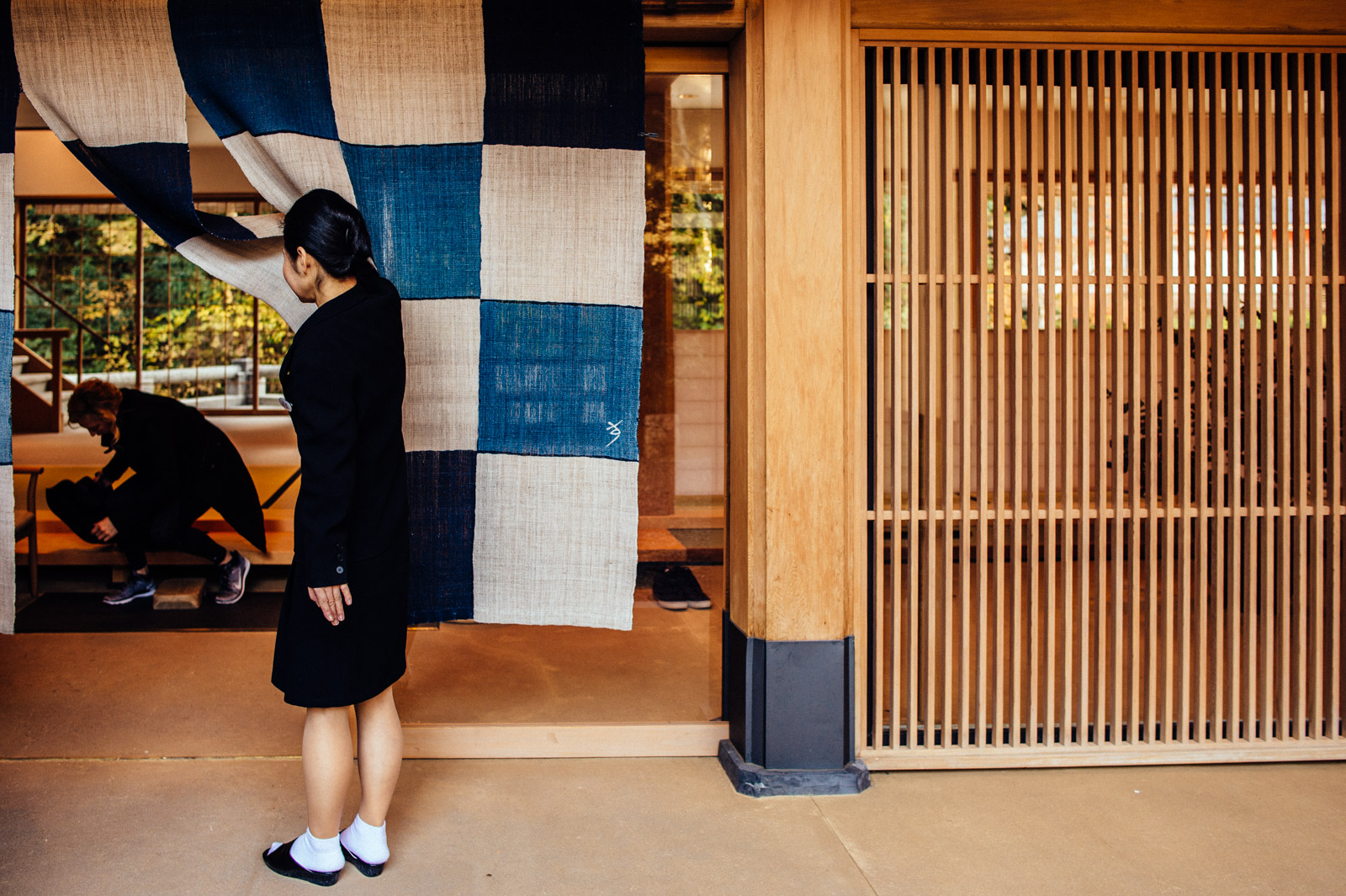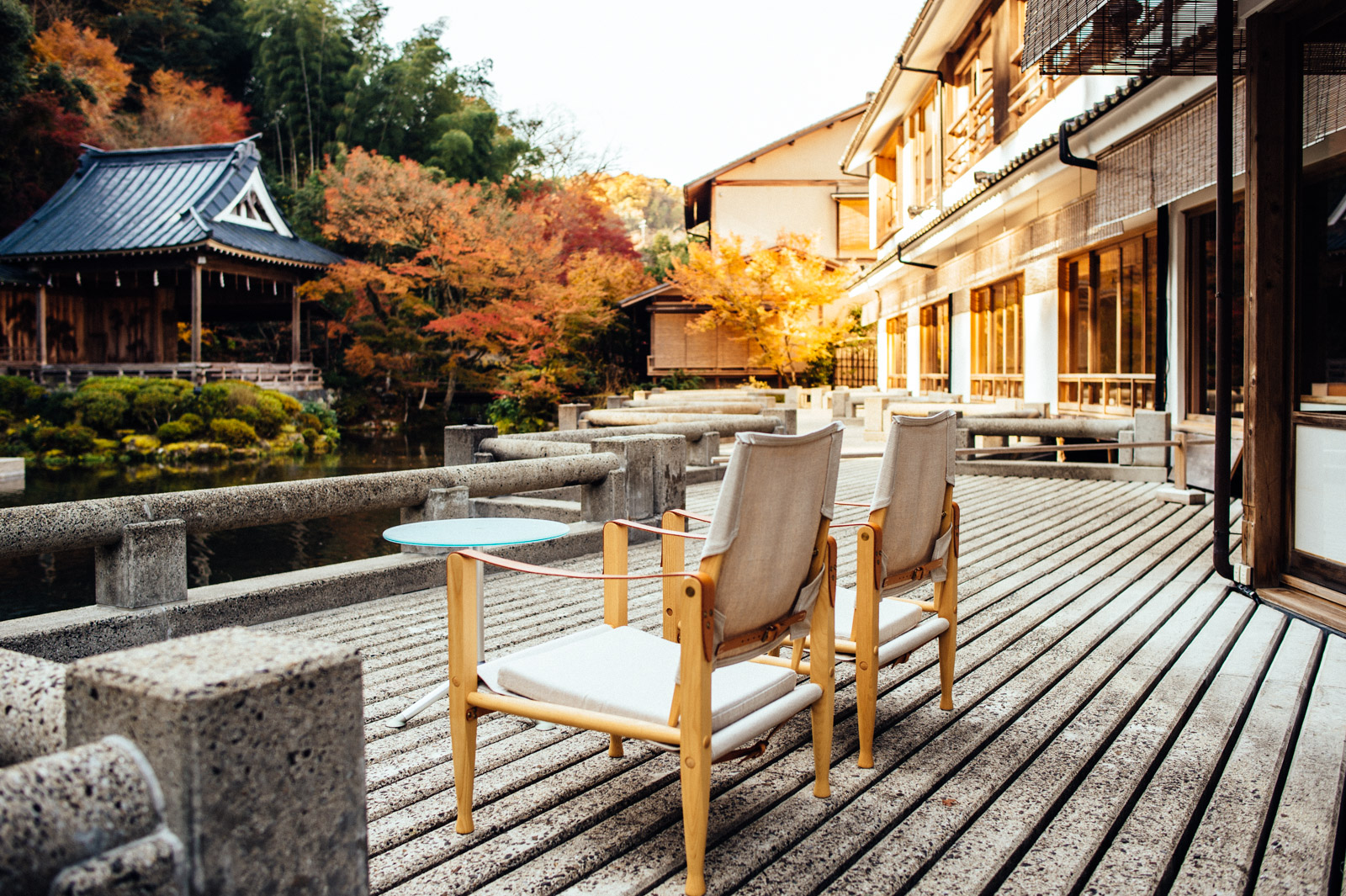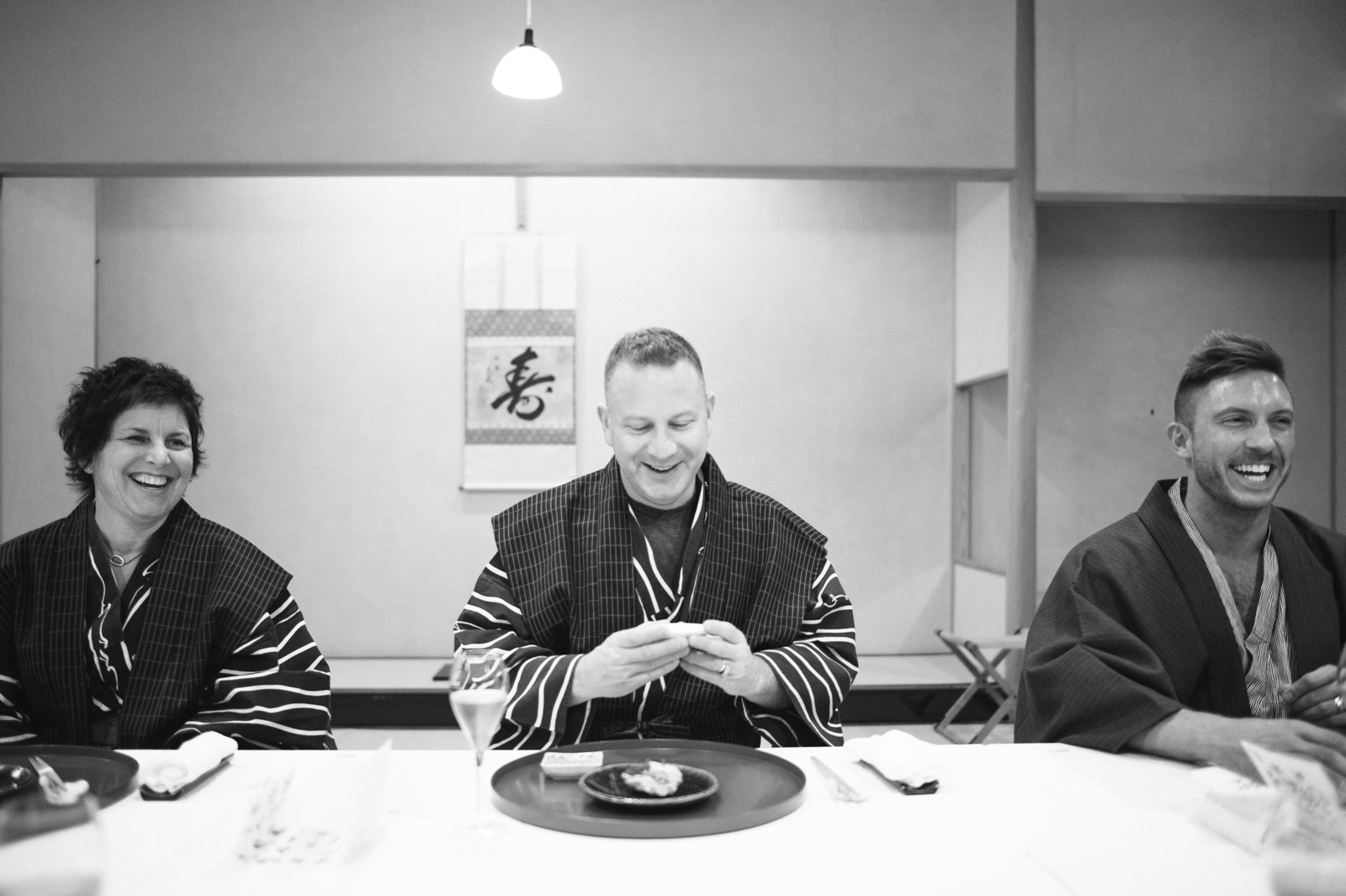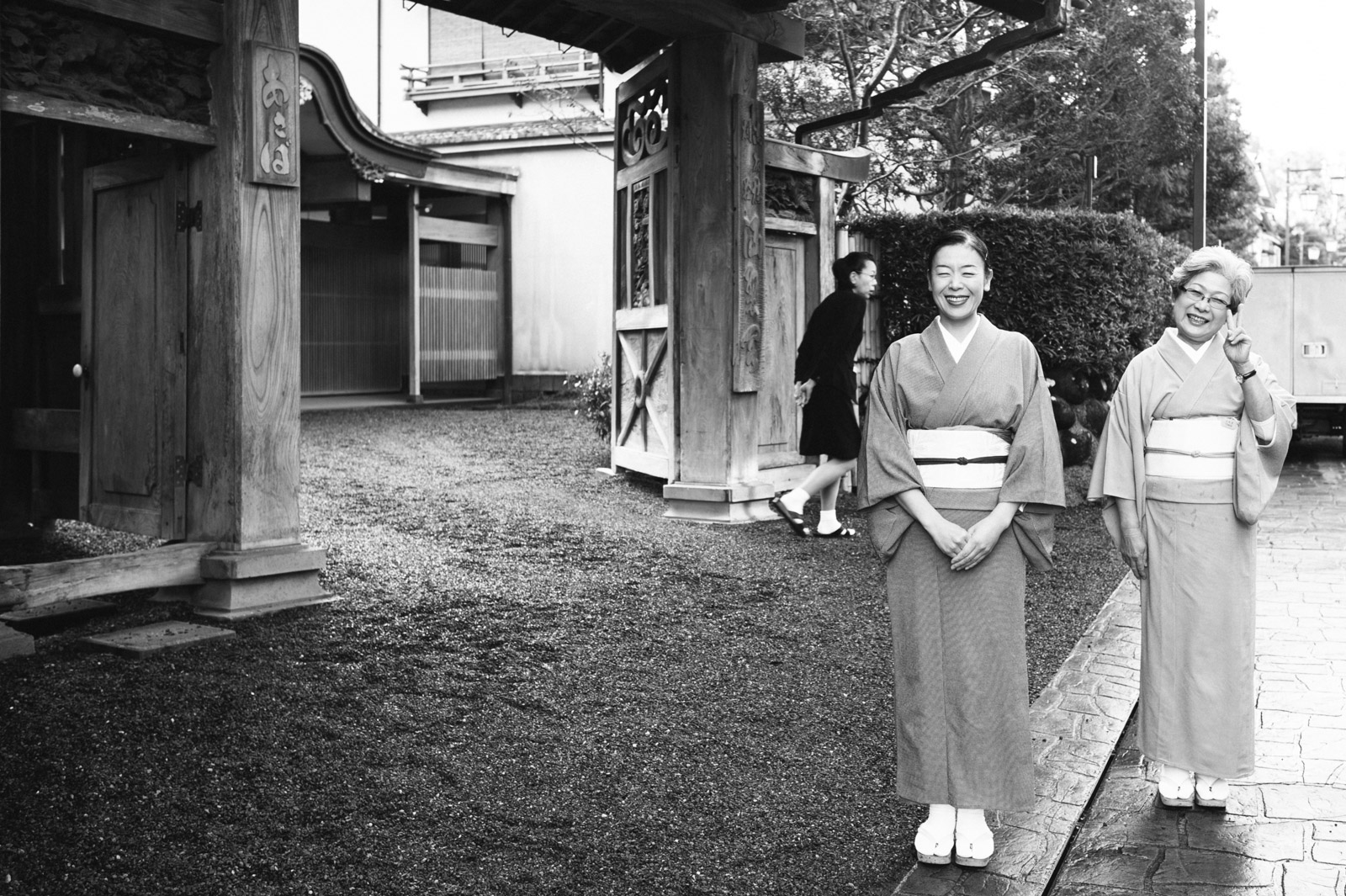Asaba Ryokan
Japanese tradition, mid-centruy modernism and healing hot springs
A 90-minute train ride to the south west of Tokyo on the Izu peninsula, in a small village called Shuzenji, is Asaba, a 500-year-old ryokan that, since our recent visit, has become the sole destination of our continued daydreams.
Known for Wasabi farms and the oldest hot spring in Izu, Shuzenji, is a destination for national tourists that’s not as often frequented by Westerners. The Japanese consider hot spring water, especially when it’s full of minerals, to have strong healing powers. As such, many ryokans have been built over the last several centuries to welcome guests seeking the water’s health benefits.

The moment we took off our shoes and entered Asaba we knew we were someplace very special. The mix of traditional Japanese architecture and mid-century modern decor was a stunning set for the ryokan’s staff to offer their warm welcome.

The east-meets-west blend is apparent even in the smallest details—the chairs in the lobby are by Swedish designer Bruno Mathsson from a series he made for Japanese furniture manufacturer Tendo Mokko. And the bright white salon features classic Bertoia chairs, but the entire orientation of the room is focused on the meditative koi pond.

Asaba has been a family-run ryokan since opening in 1489. We spoke with Misa Asaba about the property’s current incarnation. “We have been always keen to the Japanese’s architectural beauty, that is the simplicity without frills, that was passed down for generations. In addition, we just simply follow our feelings to create the place where we feel comfortable to stay and relax.”

We visited in winter, but it was unseasonably warm so the autumn leaves were still present and full of color which made for an incredible backdrop on the hill behind the pond. In warmer weather the traditional Noh theater, set in to this hillside, is a stage that can be seen from the outdoor deck, salon, lobby and many of the guest rooms.

Being winter, our yukata (indoor kimonos) were complemented by wool overcoats. Seasonality is a cornerstone of Japanese culture. While this applies to all rituals, it’s most apparent in cuisine. At Asaba, the Kaiseki meals are a series of small plates featuring local, seasonal delicacies. Our meals here were some of the best we’ve ever had in Japan and the delicious flavors were equally matched by artful presentations. We enjoyed breakfast sitting on the floor at a table in our room, though dinners were shared with friends we were traveling with in a private dining room overlooking the pond. These were timed perfectly to watch the paper lanterns be lit and placed by one of the ryokan’s conscientious staff in a boat.

Over the centuries the intention of providing a healing destination has not changed, though the clientele has. Misa Asaba explains, “Asaba originally started as a hot spring spa to heal the monks who visited Shuzenji Temple nearby over 500 years ago, and so did Asaba when later transformed its style as ‘Ryokan’ hotel for their guests. It heals guests’ bodies and souls. You can get the ultimate experiences by being exposed, yourselves, to the local culture.”

Our suite, one of only 17 at the property, was on the second floor overlooking a meditative hillside, waterfall and pond full of giant and happy koi. The decor is very traditional—dimensions of each room are dictated by the layout of tatami mats and the spaces are separated by sliding shoji screens. During the day the room is spartan and at night the most comfortable futons are made up on the bedroom floor.

At Asaba, that alkaline hot spring water is piped in to each bathroom and is used to fill oversized soaking tubs. There are, of course, public baths (Onsen in Japanese) both indoors and outdoors to enjoy as well. We were fortunate enough to visit Asaba during yuzu season; the magically sweet and lemony smelling citrus was placed in every bath.

The service was attentive and heartfelt without being suffocating or affected, and like everything else at Asaba perfectly balanced. The small gift shop featured a tasteful assortment of locally made ceramics, foods and gifts—all more desirable mementos than we find in typical hotel gift shops.
Asaba recently joined the Relais & Châteaux group through whom bookings can be made.
Images by Josh Rubin







































